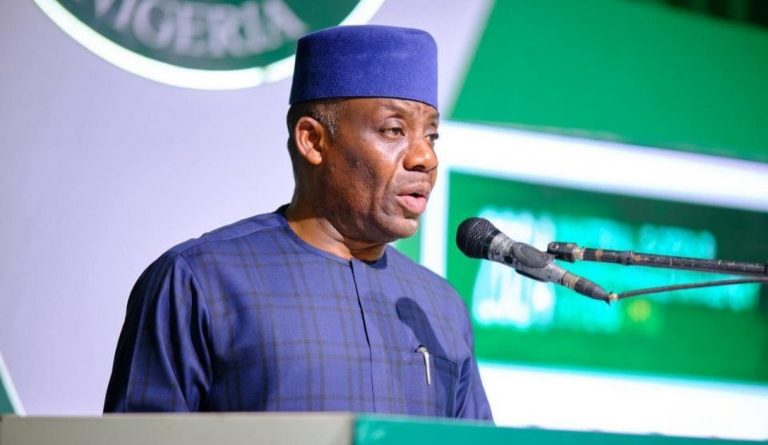FG releases ₦2.3bn to address ASUU salary, promotion arrears
…reaffirms commitment to revitalising tertiary education
The federal government has released ₦2.3 billion to universities nationwide for the payment of salary and promotion arrears to address long-standing welfare and funding challenges with the Academic Staff Union of Universities (ASUU).
It also reaffirmed its unwavering commitment to revitalising Nigeria’s tertiary education sector through decisive fiscal interventions, policy reforms, and sustained dialogue with the ASUU and other university-based unions.
Maruf Olatunji Alausa, minister of education, disclosed this in Abuja while providing updates on ongoing engagements with ASUU and other tertiary institution unions.
According to a statement signed by Folasade Boriowo, director of Press and Public Relations, the minister said President Bola Ahmed Tinubu remains resolute in his determination to resolve all lingering welfare and funding issues in a transparent, fair, and sustainable manner.
Alausa announced that the federal government has released ₦2.311 billion, representing Batch 8 salary and promotion arrears to universities across the country.
He noted that the disbursement, processed through the Office of the Accountant-General of the Federation (OAGF), reflects the Tinubu administration’s commitment to clearing inherited backlogs and enhancing the welfare of both academic and non-academic staff in tertiary institutions.
“A total of ₦2.311 billion, representing Batch 8 salary and promotion arrears, has been released through the Office of the Accountant-General of the Federation to universities. Benefiting institutions should begin to receive payment alerts anytime from now,” the minister stated.
He further disclosed that the federal government, through the Ministry of Finance and the OAGF, is finalising the release of third-party non-statutory deductions and pension remittances to Nigerian University Pension Management Company (NUPEMCO), expected to be completed in the coming days.
Alausa also revealed that the government has approved the full mainstreaming of the Earned Academic Allowance (EAA) into university staff salaries beginning from 2026, a move he said would ensure prompt, predictable, and sustainable payments going forward.
He added that funds have been released under the Needs Assessment of Nigerian Universities, with corresponding budgetary provisions made to sustain the initiative.
He reaffirmed that these measures demonstrate the government’s strong commitment to improving academic staff welfare and addressing long-standing challenges that have persisted for decades.
Over the past twenty-six months, the federal government has paid a significant portion of outstanding obligations while maintaining open communication with all academic and non-academic unions of tertiary institutions.
“The Federal Ministry of Education assures that these engagements are being conducted truthfully and in good faith. However, while the government remains committed to improving staff welfare, it will only enter into agreements that are realistic and financially sustainable,” Alausa stated.
The minister also highlighted the role of the Yayale Ahmed Negotiating Committee as a bridge between the federal government and tertiary institution unions, ensuring that all pending welfare-related issues are addressed through honest and mutually respectful dialogue.
Read also: How 16 ASUU strikes failed to fix universities
He stressed that the government will not engage in unsustainable fiscal practices, emphasising that all matters must be addressed responsibly and in the best interest of our education system, with commitments aligned to approved budgetary provisions to guarantee long-term stability.
“Our priority is to ensure that all matters are addressed responsibly and in the best interest of our education system,” he said,
Alausa commended President Bola Ahmed Tinubu for his unwavering dedication to the education sector, noting that several challenges that had persisted for decades are now being tackled decisively under his administration.
He expressed optimism that the ongoing reforms and fiscal interventions would usher in lasting industrial harmony, restore confidence in Nigeria’s tertiary education system, and strengthen institutional capacity for national development.

